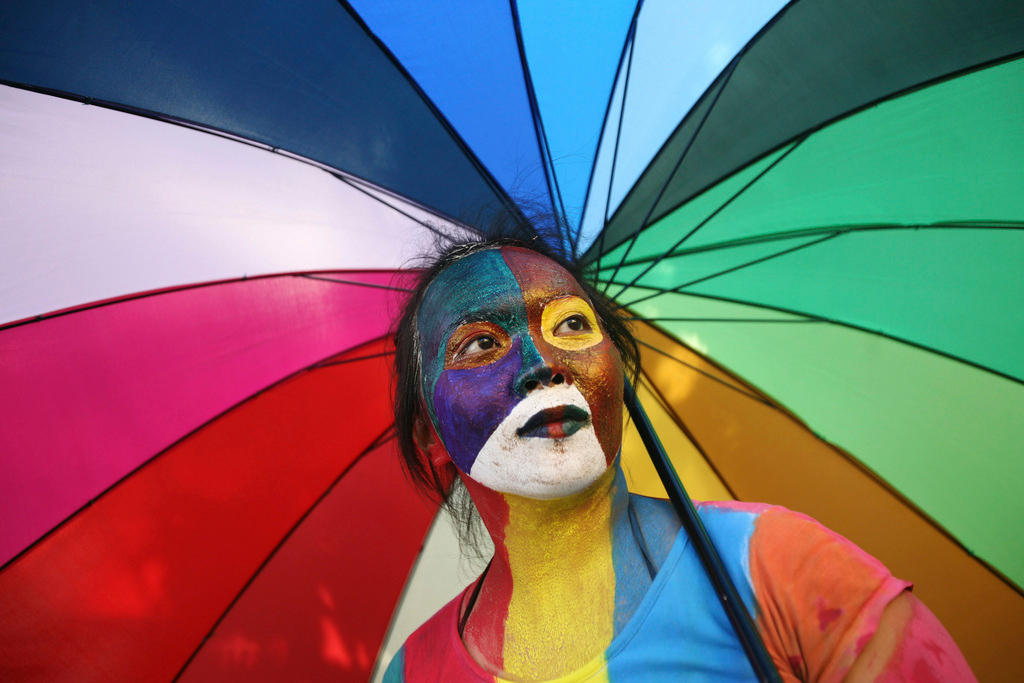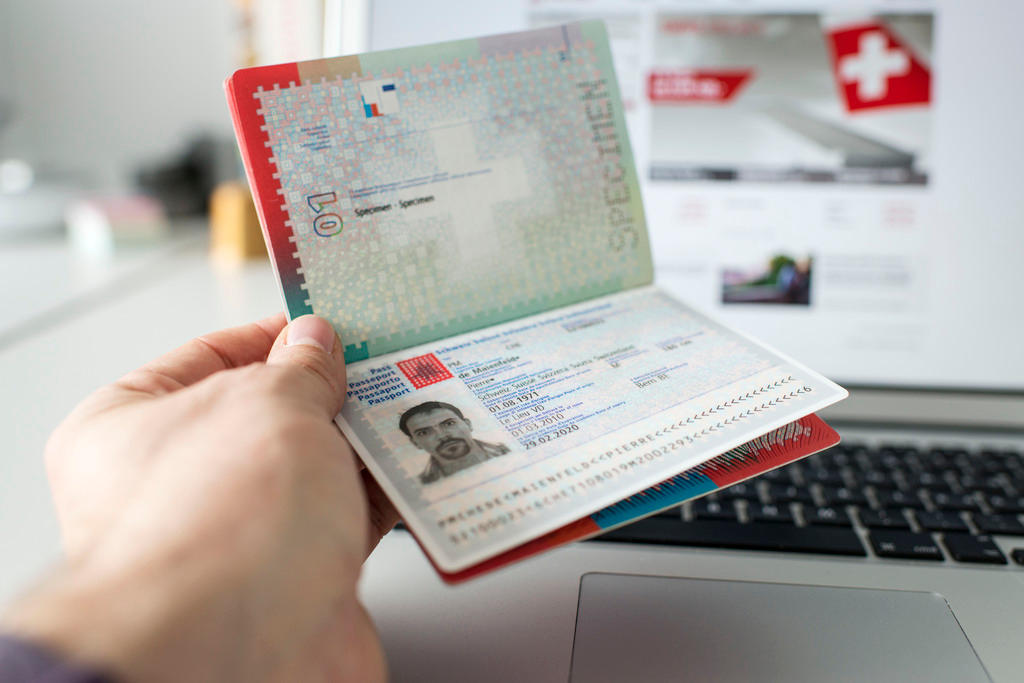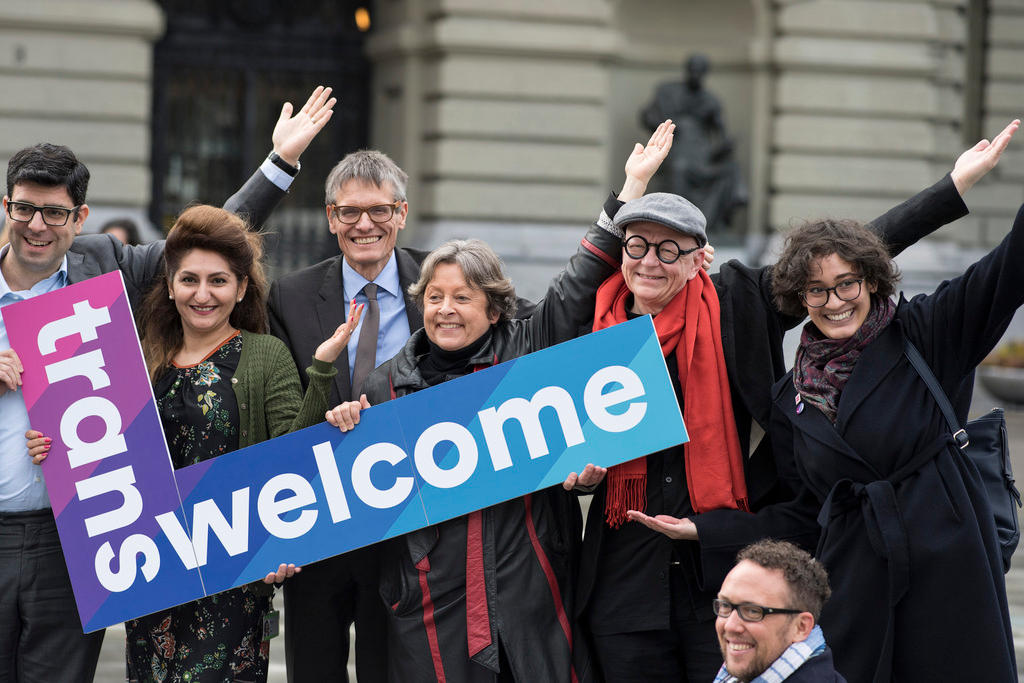Switzerland labels homophobia a criminal offence

The Swiss parliament has extended the scope of anti-racism laws to include discrimination based on sexual orientation. Intersexual (people born with male and female chromosones and/or sexual organs) and transgender people, on the other hand, will not enjoy the same level of protection.
Both houses of parliament have now approved a motion to criminalise homophobia. Switzerland now joins the likes of France, Austria, the Netherlands and Denmark in taking criminal action against such discrimination.
Homophobia can now be combated in the same way as racism. For example, a person who publicly declares that “all homos should be imprisoned in camps” can be prosecuted. This has not been the case so far.
Homophobic bodily injuries can now also be properly recorded. This makes it possible to meet the demands of LGBTIQ organisations of keeping statistics on homophobia.
Anyone who violates the law, either with racist or homophobic acts, can be sentenced to up to three years in prison. The authorities are obliged to intervene as soon as they learn of acts of hatred and discrimination based on sexual orientation.
The new standard will make it possible to combat homophobic attacks or statements, such as these five examples.
Too much or too little?
Parliament has however refused to add discrimination based on gender identity, i.e. against transsexuals or intersexuals to the text of the law criminal amendment. A majority of parliamentarians felt that gender identity was too vague a concept.
Some wondered whether it was really necessary to extend the list of crimes of discrimination. “If you agree to this, it will never stop,” said Senator Andrea Caroni of the centre-right Free Democratic Party (FDP), during the debate. He rhetorically asked whether discrimination against disabled people, linguistic regions, nationalities or political opinion should also be included in the law.
LGBTIQ organisations welcomed the extension of the anti-racism penal standard, but regretted the decision that “excludes and further marginalises intersexuals and transsexuals”. “[The law] will only be complete when it condemns discrimination based on gender identity,” said Alecs Recher, a lawyer with Transgender Network Switzerland (TGNS).
Politician Mathias Reynard, the author of the parliamentary motion, told the 24 Heures newspaper that “it is difficult to go further with the current parliament”. He added that “according to some lawyers, this law can also be used in the case of a transphobic attack” and that the courts could interpret it broadly.
The centre-left Social Democrats prefer to see “the glass half full” than empty. “Homophobia is no longer seen as an opinion, but as a criminal offence. It’s the same as being racist,” Reynard told public service television RTS.

More
As countries tighten transgender protections, will Switzerland follow?

In compliance with the JTI standards
More: SWI swissinfo.ch certified by the Journalism Trust Initiative




You can find an overview of ongoing debates with our journalists here . Please join us!
If you want to start a conversation about a topic raised in this article or want to report factual errors, email us at english@swissinfo.ch.